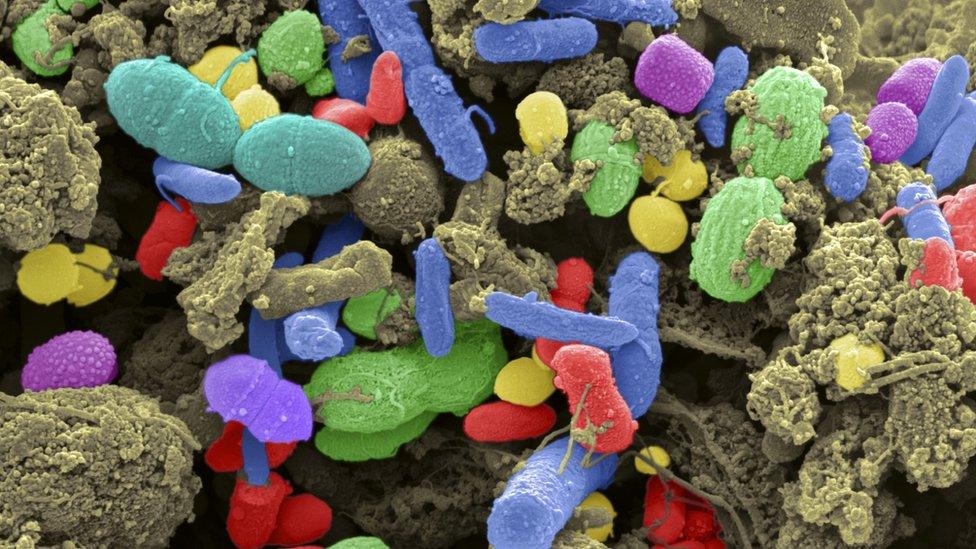Body fat link to bacteria in faeces
- Published

At least 50% of human faeces is made up of bacteria shed from the gut
The make-up of the bacteria found in human faeces may influence levels of dangerous fat in our bodies, say researchers from King's College London.
Their analysis of stool samples in a study of more than 3,600 twins found evidence that some of this bacteria is inherited.
What is contained in faeces bacteria could therefore partly explain why obesity passes down through families.
The study is published in Genome Biology.
The research team extracted information from study participants about the human faecal microbiome - the bacteria present in faeces samples - and compared these to six different measures of obesity, including body mass index (BMI) and different types of body fat.
iWonder - What does your poo say about you?
The researchers found the strongest links with visceral fat, where participants with a high diversity of bacteria in their faeces had lower levels of visceral fat.
This type of body fat is bad news because it is stored in the stomach area around important organs such as the liver, pancreas and intestines and is linked with higher risks of cardiovascular disease and diabetes.
More investigation
Dr Michelle Beaumont, lead study author from the department of twin research and genetic epidemiology at King's College London, said although the study showed a clear link, it was not yet possible to explain why it existed.
One theory is that a lack of variety in faecal bacteria could lead to the domination of high levels of gut microbes which are good at turning carbohydrates into fat.
Dr Beaumont said: "As this was an observational study we cannot say precisely how communities of bacteria in the gut might influence the storage of fat in the body, or whether a different mechanism is involved in weight gain."
And she indicated more research was needed to investigate how microbes in our guts and in our faeces can influence our health.
But there is a growing body of evidence to suggest that gut bacteria may play a role in obesity.
It is known that at least 50% of human faeces is made up of bacteria shed from the gut.
Dr Beaumont said that eating a broad diet including a variety of different types of food - much like that of the early hunter-gatherers - could increase the diversity of microbes in our faeces.
If the theory that microbes are passed on down the generations is correct, she said they may play an important role in how fat develops around the body and the health risk it presents.
- Published11 August 2016
- Published4 April 2016